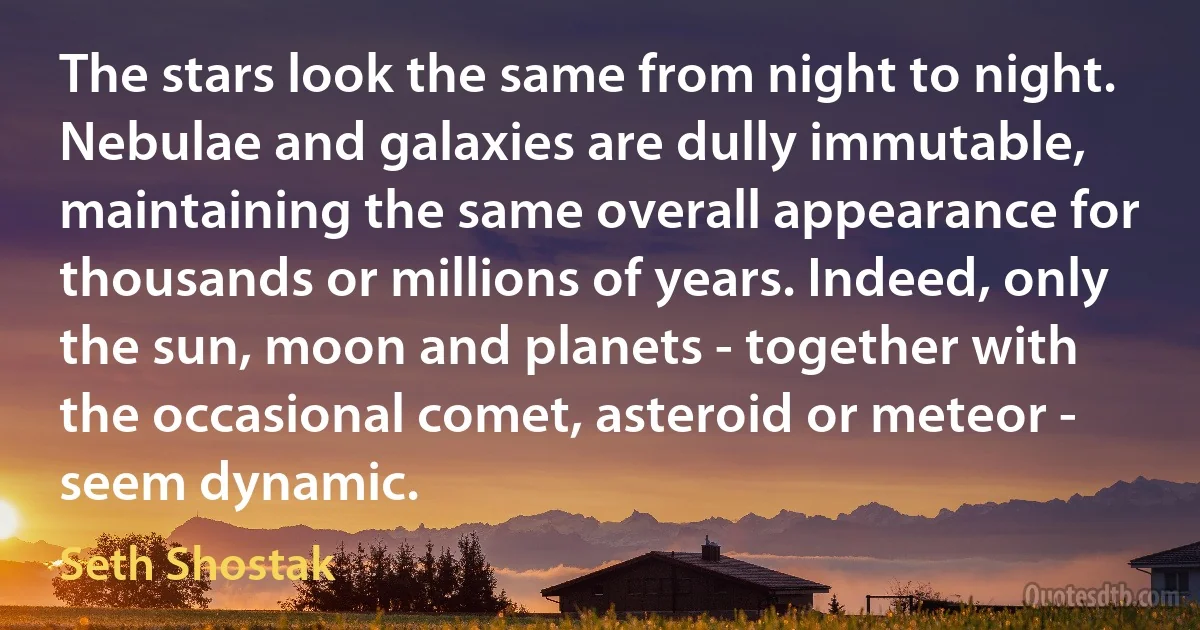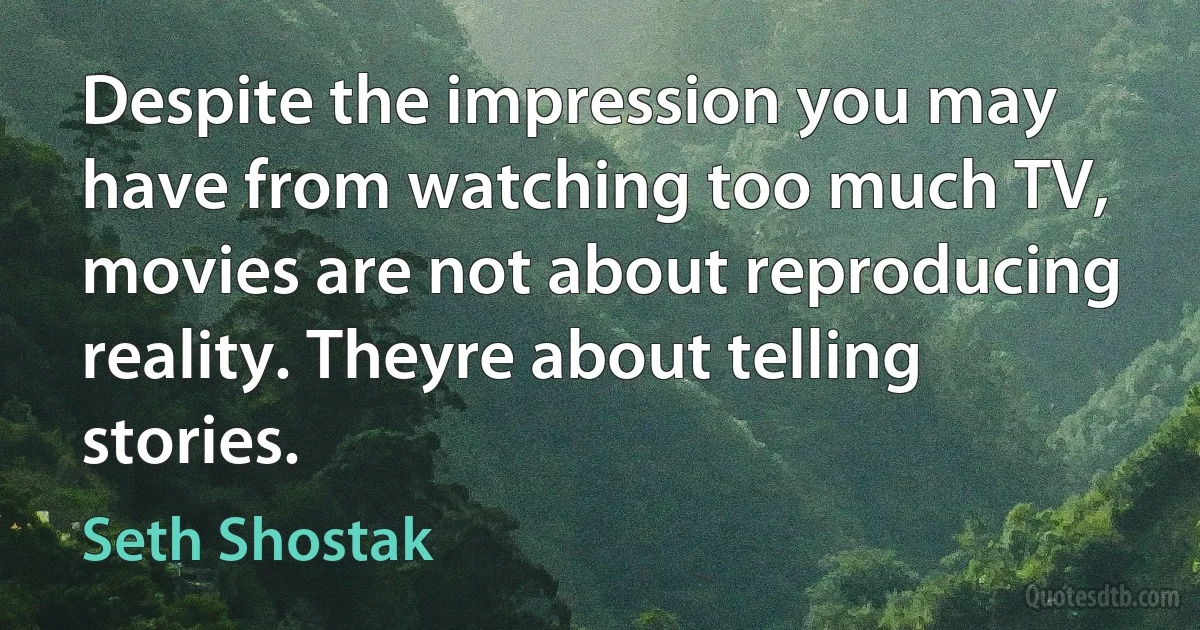Seth Shostak quotes
The Moon is a ball of left-over debris from a cosmic collision that took place more than four billion years ago. A Mars-sized asteroid - one of the countless planetesimals that were frantically churning our solar system into existence - hit the infant Earth, bequeathing it a very large natural satellite.

Seth Shostak
Sending greeting cards to aliens is hardly a new idea. In 2005, Craigslist solicited messages for broadcast to space by a transmitter in Florida, and in 2008, NASA beamed a Beatles song to the North Star (Polaris), on the assumption that any putative Polarians would appreciate the Fab Four's 1960s-genre compositions.

Seth Shostak
Neil Armstrong was no Christopher Columbus. In most respects, he was better. Unlike the famous fifteenth century seafarer, Armstrong knew where he landed. He also spent his time in public service, not in jail, and his passing was marked by world-wide encomiums. He ended his days as a celebrated explorer rather than a royal inconvenience.

Seth Shostak
Five centuries from now - barring unimaginable catastrophe - the moon will be developed real estate. There's economic incentive to exploit the moon - the helium-3 will be useful in powering fusion reactors, and the rare earth elements could supplant the limited terrestrial supply of these materials.

Seth Shostak


